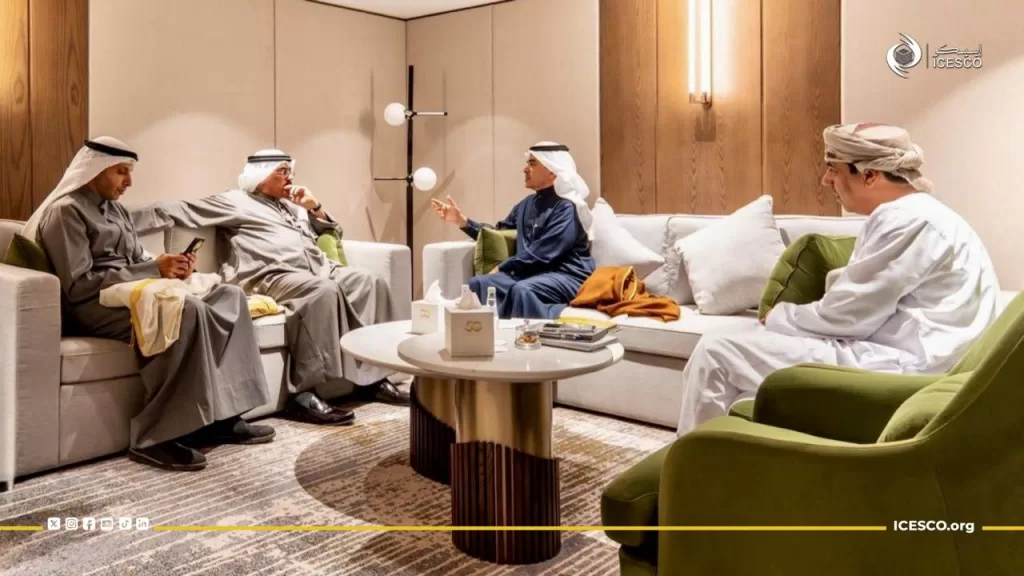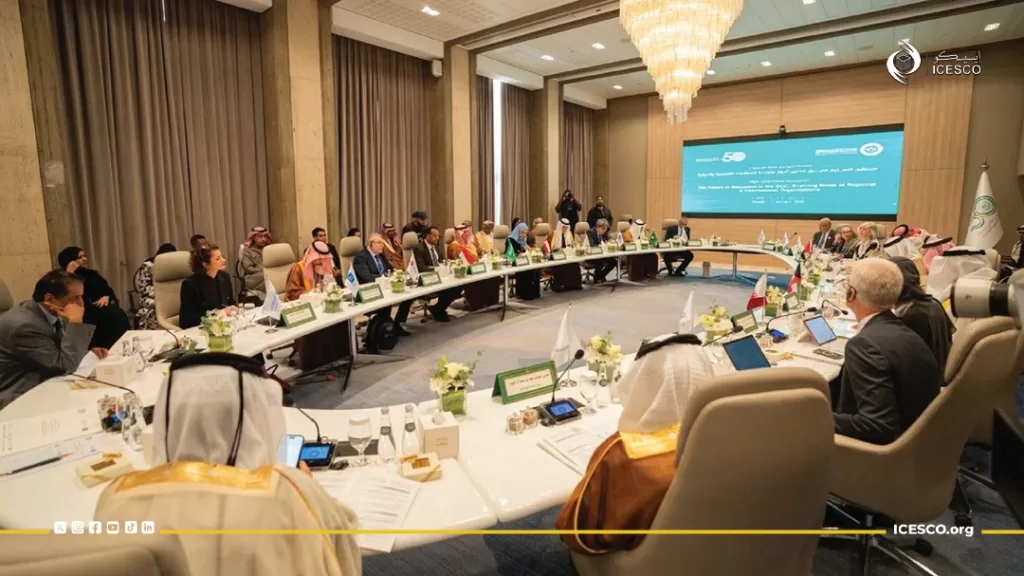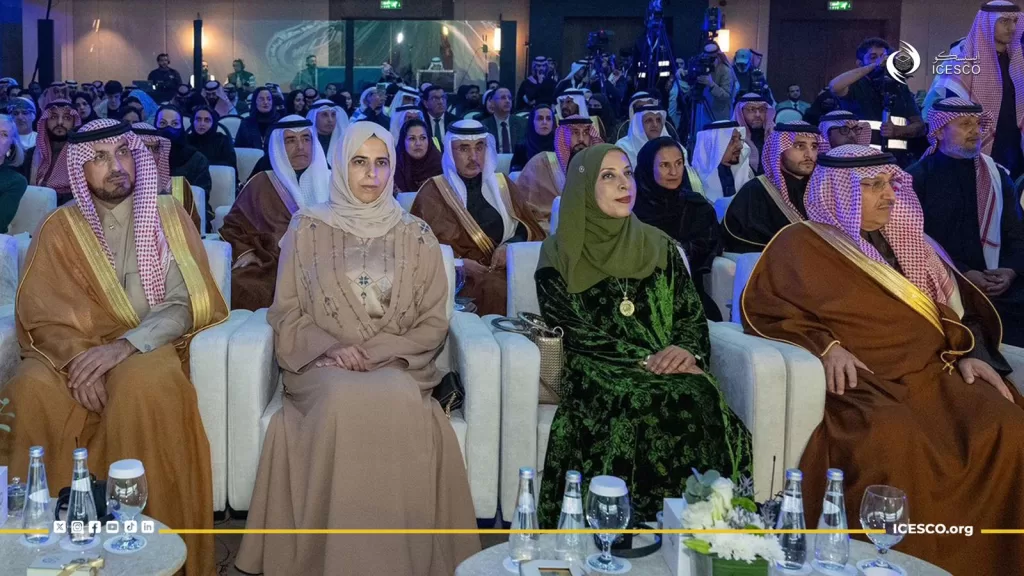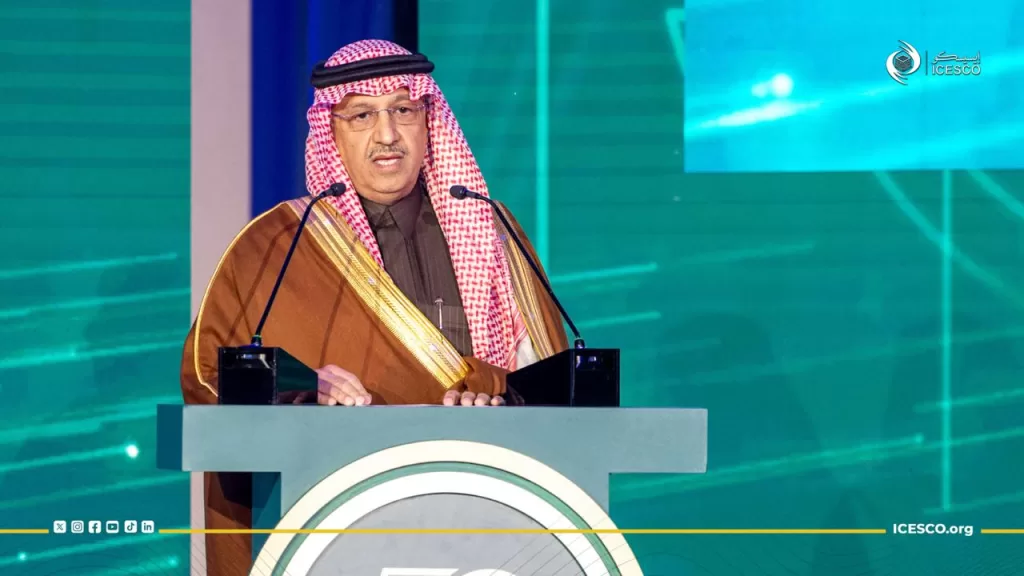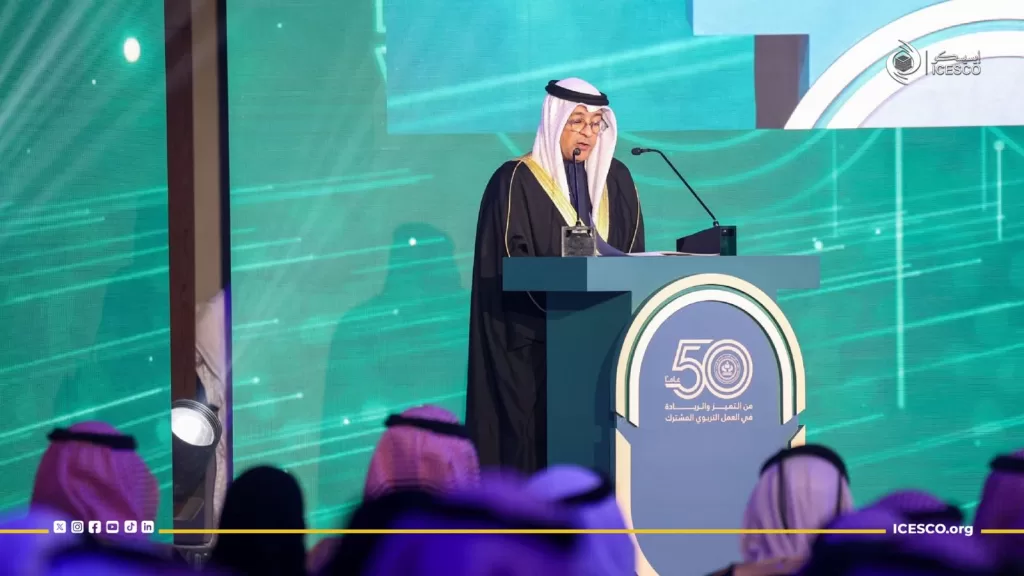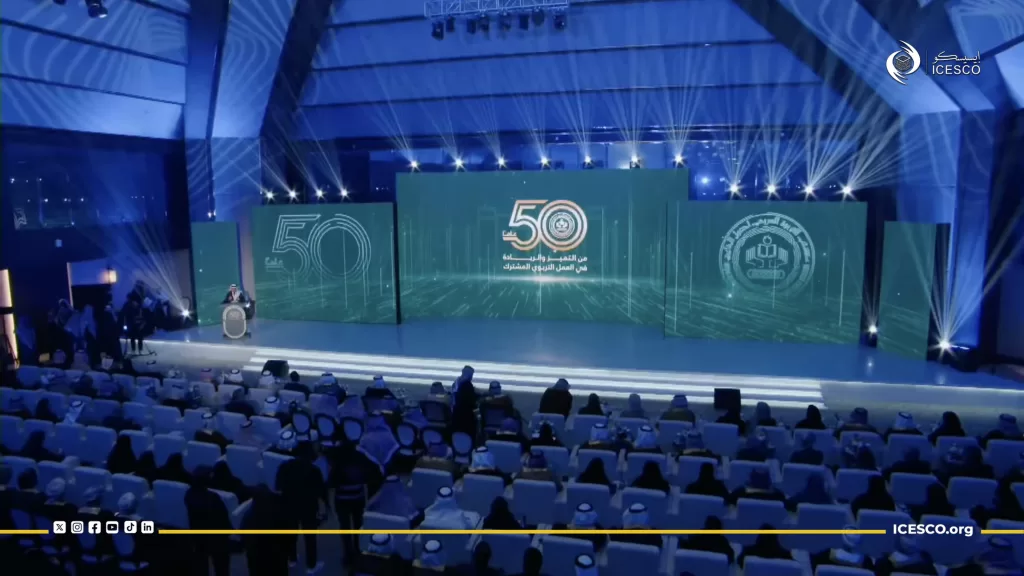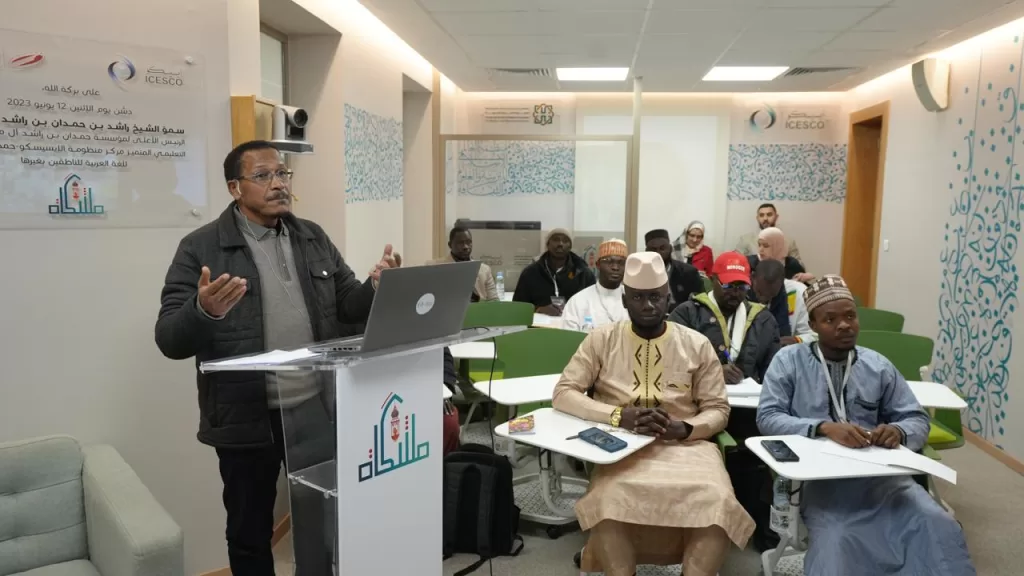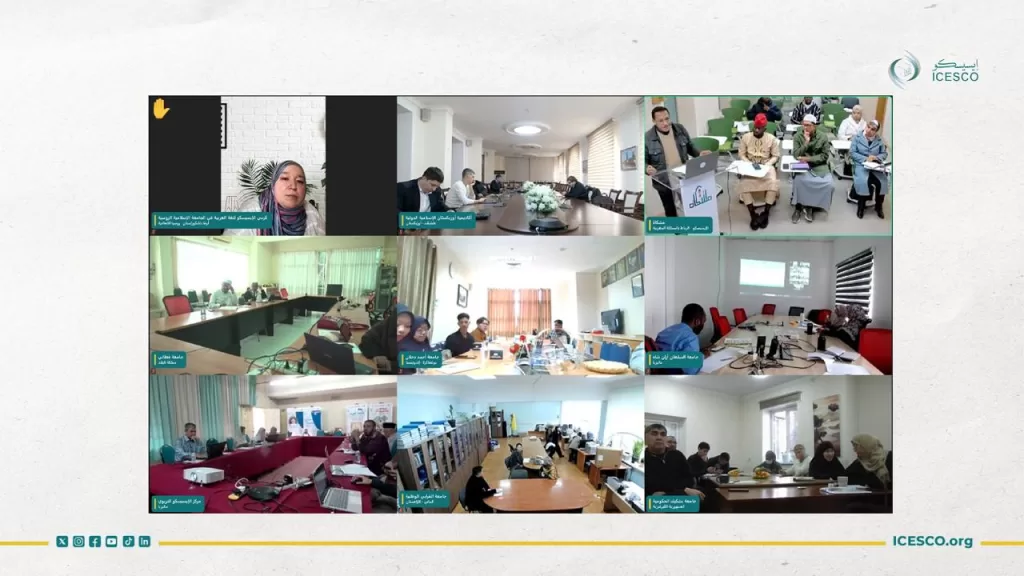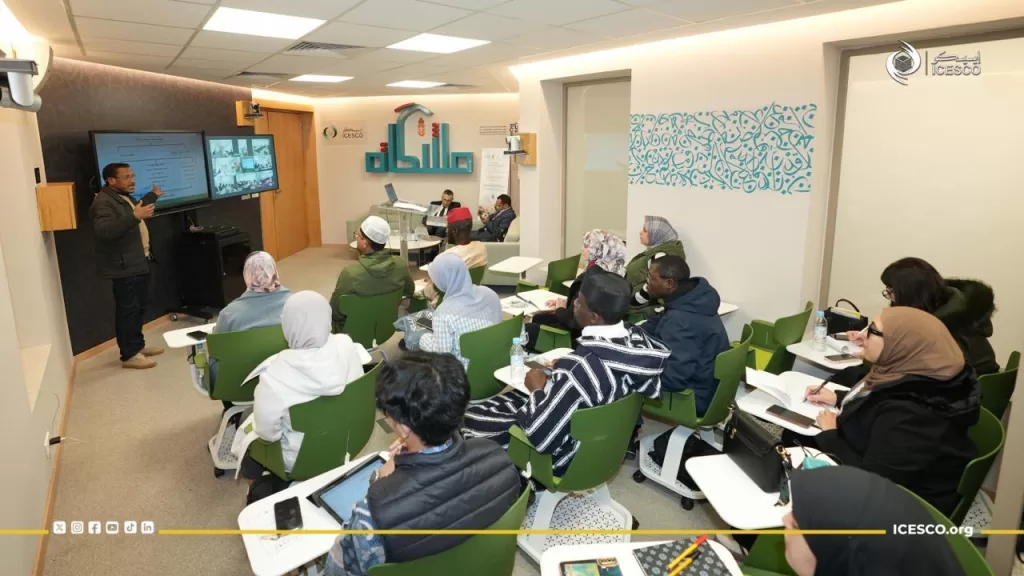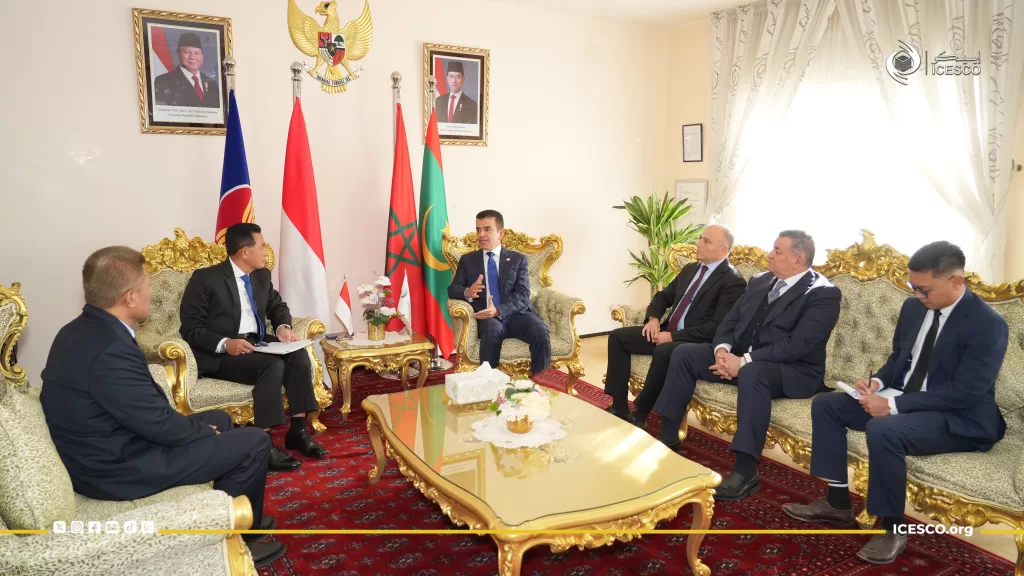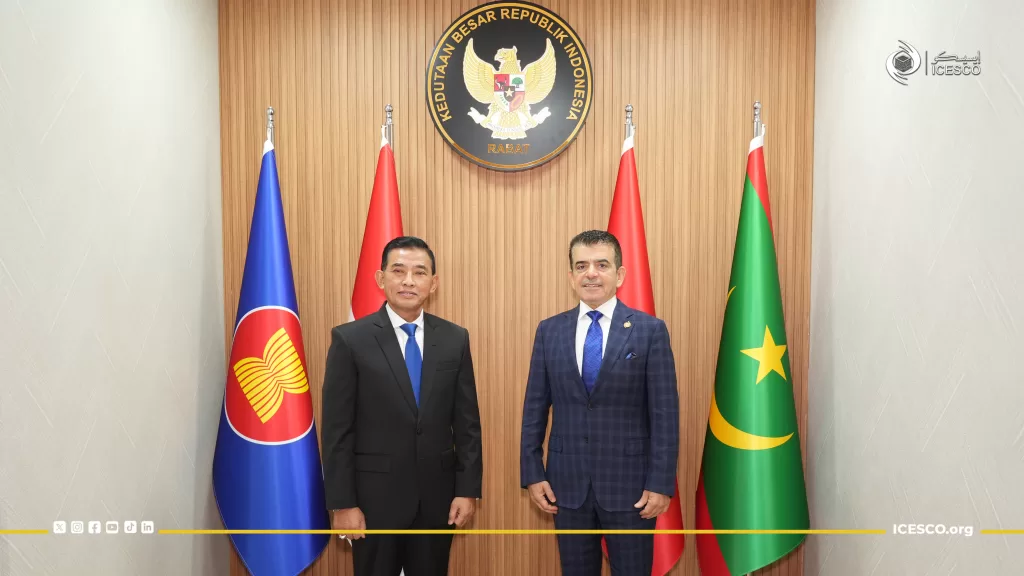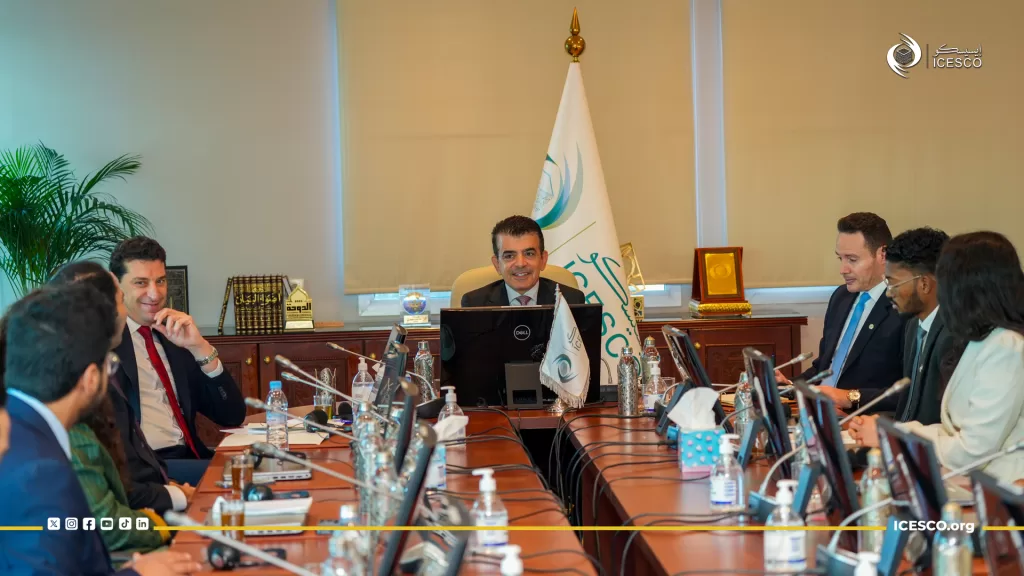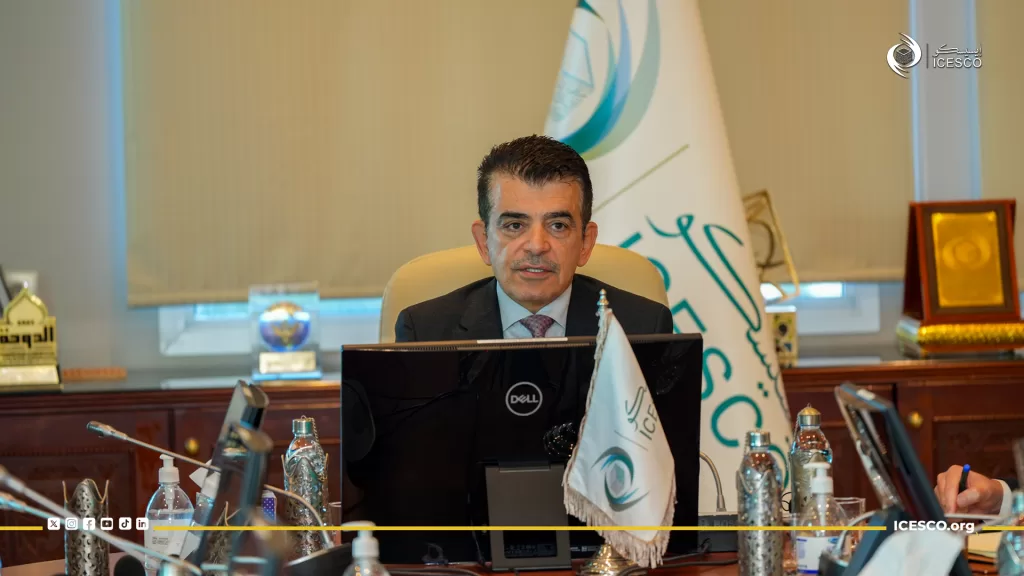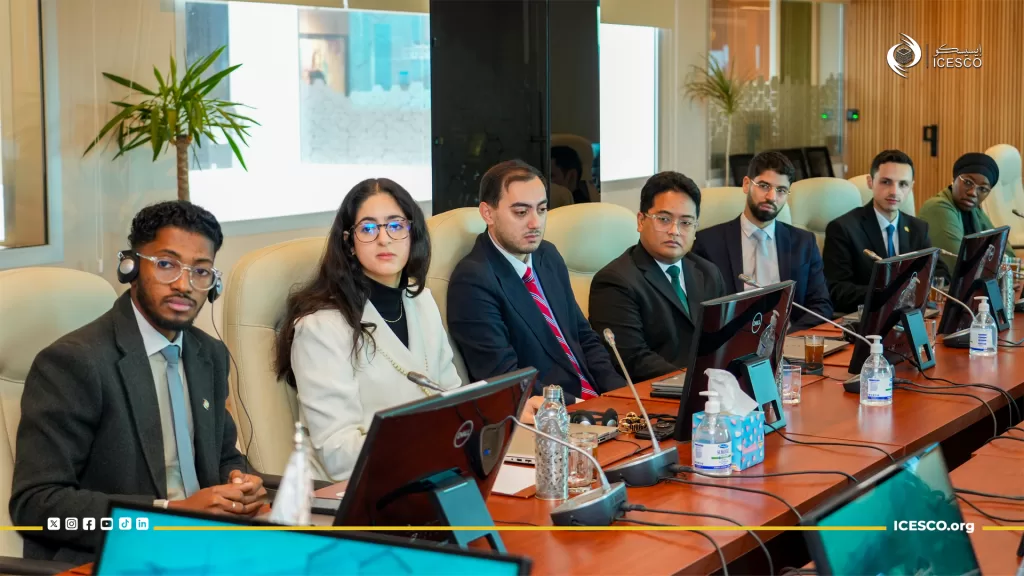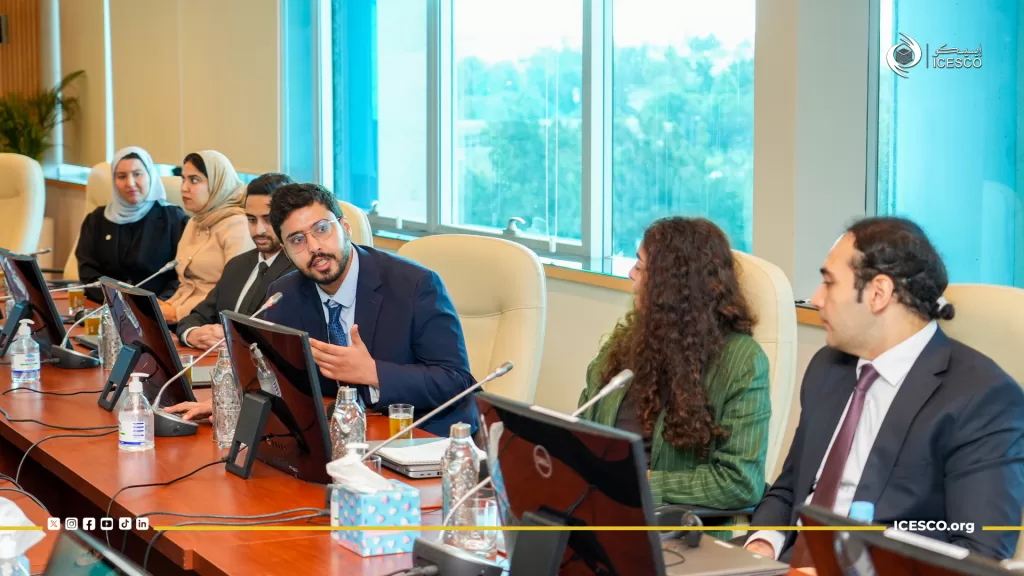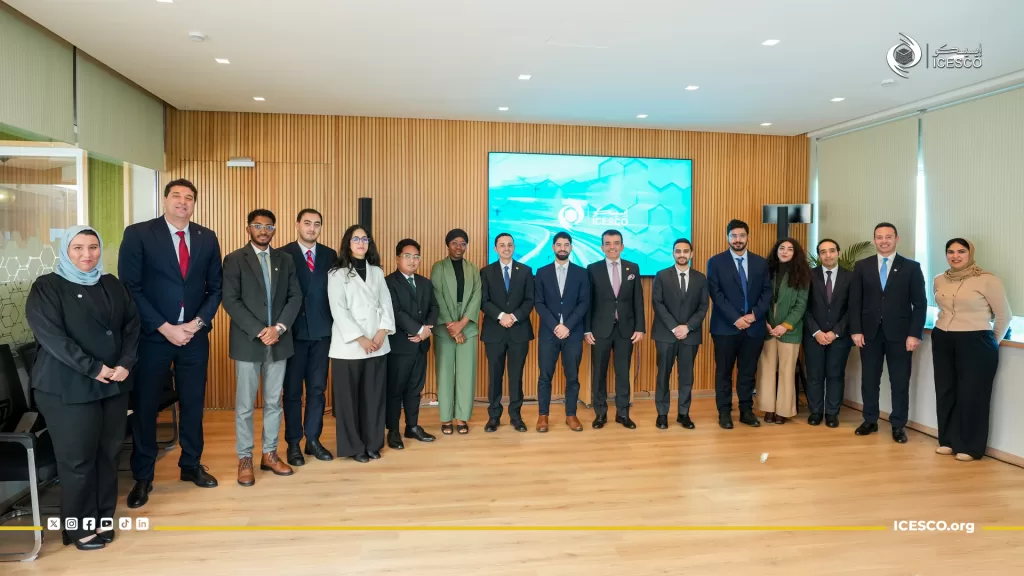Dr. AlMalik stresses the importance of Kuwait’s participation in ICESCO programs, initiatives, and conferences
Dr. Salim M. AlMalik, Director-General of the Islamic World Educational, Scientific and Cultural Organization (ICESCO), met with Eng. Sayed Jalal Al-Tabtabaei, Minister of Education and Chairperson of the Kuwaiti National Commission for Education, Science and Culture, on the sidelines of the Golden Jubilee celebrations of the Arab Bureau of Education for the Gulf States, held in Riyadh, Kingdom of Saudi Arabia.
During the meeting, which took place on Wednesday, 14 January 2026, the two sides discussed ways to strengthen cooperation between ICESCO and Kuwait’s Ministry of Education and explored new avenues for partnership, in light of Kuwait’s leading role and its outstanding contributions in education and other development fields.
Dr. AlMalik emphasized the importance of leveraging Kuwait’s successful expertise, particularly in administrative and educational fields, noting that attracting such competencies to work with ICESCO would enhance institutional performance and foster knowledge exchange. Both parties agreed on the need to involve distinguished Kuwaiti administrative professionals in some of the Organization’s programs and activities.
For his part, the Kuwaiti Minister of Education stressed the importance of developing institutional cooperation with ICESCO and expressed the Ministry’s interest in collaborating to improve the outcomes of Kuwait’s educational system by adopting precise educational indicators that contribute to raising the quality of education and improving its results.
The two sides also discussed prospects for cooperation in setting educational standards for teacher selection and training, including standards for special education, and in selecting trained candidates to lead the teaching profession, ensuring the preparation of teachers with professional competence and the ability to meet the requirements of modern education.
In this regard, Dr. AlMalik affirmed that Kuwait should have a strong presence in ICESCO’s programs, conferences and seminars in the fields of education, culture and science, reflecting its status and role in supporting joint educational efforts in the Islamic world.
At the close of the meeting, both parties agreed to dispatch an ICESCO delegation to Kuwait to discuss future cooperation and develop a practical framework for joint programs and initiatives.
The meeting was attended by Dr. Salim Al Habsi, Head of the General Secretariat for National Commissions and Conferences, along with several senior officials from the Ministry.
